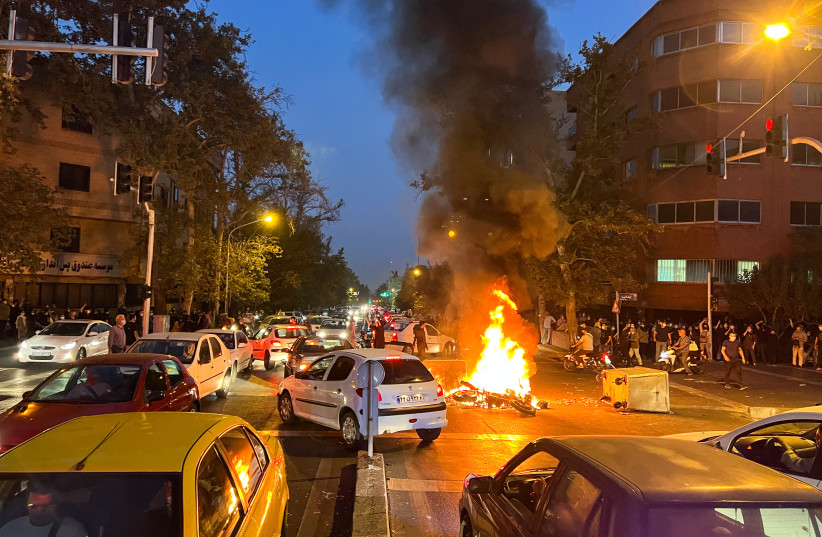Iran has recently erupted into protests and public outcry after the death of Mahsa Amini while in police custody after being arrested for allegedly wearing hijab improperly. Consequently, there has been much discussion of Iran's infamous morality police.
Who are Iran's morality police and what do they do?
- The morality police, attached to Iranian law enforcement, are mandated to ensure the respect of Islamic morals as described by the Islamic Republic's top clerical authorities.
- The typical unit consists of a van with a mixed male and female crew that patrols or waits at busy public spaces to police behavior and dress considered improper.
- People apprehended by the morality police are either given a notice or, in a few cases, taken to "correctional facilities" or a police station where they are lectured on how to dress or act morally before being released to their male relatives.
- Fines are sometimes given, although there is no general rule about pecuniary punishment.
- In Islam, hijab refers to what is deemed modest attire. Under Iran's sharia, or Islamic law, women are obliged to cover their hair and wear long, loose-fitting clothes to disguise their figures.
- Decades after the 1979 Islamic Revolution, clerical rulers still struggle to enforce the law, with many women of all ages and backgrounds wearing tight-fitting, thigh-length coats and brightly colored scarves pushed back to expose plenty of hair.
- The morality police are often made up of and backed by the Basij, a paramilitary force initially mobilized to fight in the Iran-Iraq war in the 1980s.
- Basij have a presence in every Iranian university to monitor people's dress and behavior, as higher learning is where Iranian male and females meet for the first time in a mixed educational environment.
Protecting women?
In an anonymous interview with the BBC, one officer spoke plainly about his work as a member of the morality police.

"They told us the reason we are working for the morality police units is to protect women," he said. "Because if they do not dress properly, then men could get provoked and harm them."
"It's like we are going out for a hunt," he confessed.
The officer also told the BBC that he found it especially difficult when citizens resisted arrest: "They expect us to force them inside the van. Do you know how many times I was in tears while doing it?
"I want to tell them I am not one of them. Most of us are ordinary soldiers going through our mandatory military service. I feel so bad."
The hijab as protection
The divine command of Hijab is widely attributed to the Quranic verses 24:31 and 33:58. The former commands Muslim women to "draw their veils over their chests, and not reveal their hidden adornments" except to close family. The latter entreats the Prophet to "ask your wives, daughters, and believing women to draw their cloaks over their bodies. In this way it is more likely that they will be recognized as virtuous and not be harassed."
This latter verse touches on the aspect of protection that the anonymous morality police officer spoke of. According to the verse, covering the body is meant as a measure against harassment.
